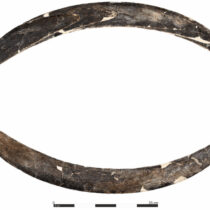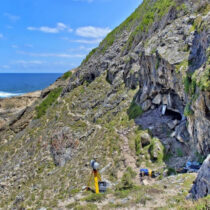An international team of researchers has analyzed human DNA from Greek colonies in Sicily. The results of the study, headed by David Reich of Harvard Medical School, were published in PNAS.
Researchers have studied genome-wide data from 54 individuals from 8th to 5th-century Sicily and have gained insights into the composition of Classical Greek armies (ca. 5th c. BC) and the populace of a Greek colony. The presence of mercenaries in Greek armies fighting in the Mediterranean, as early as 480 BC and with origins as far away as northern Europe and the Caucasus, is absent from historical texts and thus so far underappreciated in ancient classical scholarship. This interdisciplinary study both underlines the value of integrating genetic studies to complement archaeological and historical research and highlights the importance of warfare in facilitating continental-scale human mobility, cultural contact, and cooperation in the Mediterranean of the Classical period, according to the study.
In the abstract of their study, we read: “Trade and colonization caused an unprecedented increase in Mediterranean human mobility in the 1st millennium BC. Often seen as a dividing force, warfare is in fact another catalyst of culture contact. We provide insight into the demographic dynamics of ancient warfare by reporting genome-wide data from fifth-century soldiers who fought for the army of the Greek Sicilian colony of Himera, along with representatives of the civilian population, nearby indigenous settlements, and 96 present-day individuals from Italy and Greece. Unlike the rest of the sample, many soldiers had ancestral origins in northern Europe, the Steppe, and the Caucasus. Integrating genetic, archaeological, isotopic, and historical data, these results illustrate the significant role mercenaries played in ancient Greek armies and highlight how participation in war contributed to continental-scale human mobility in the Classical world”.





